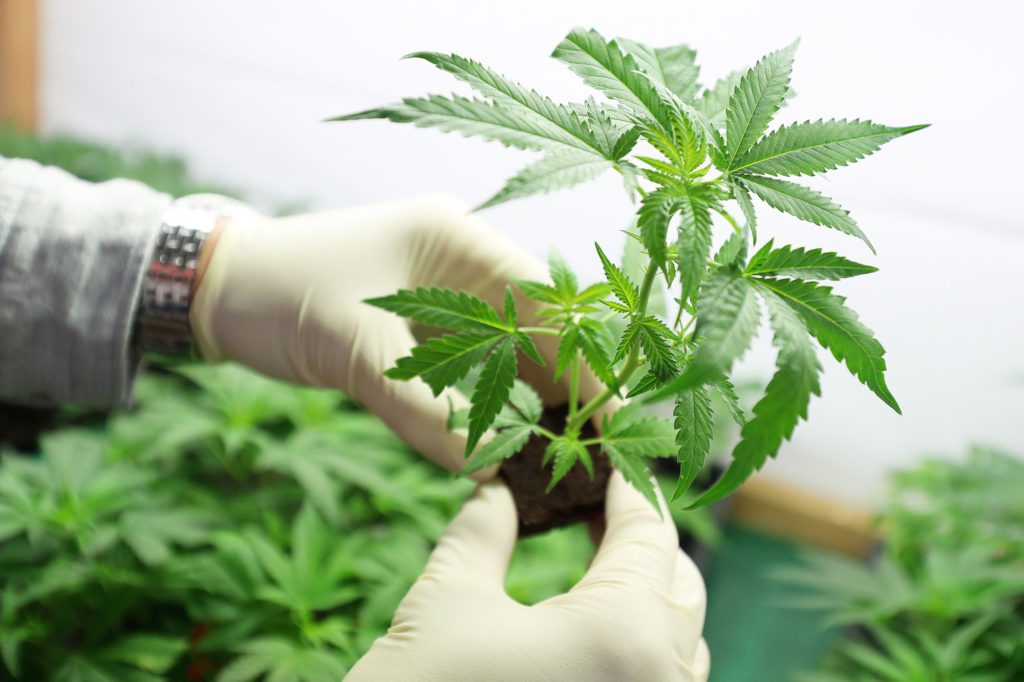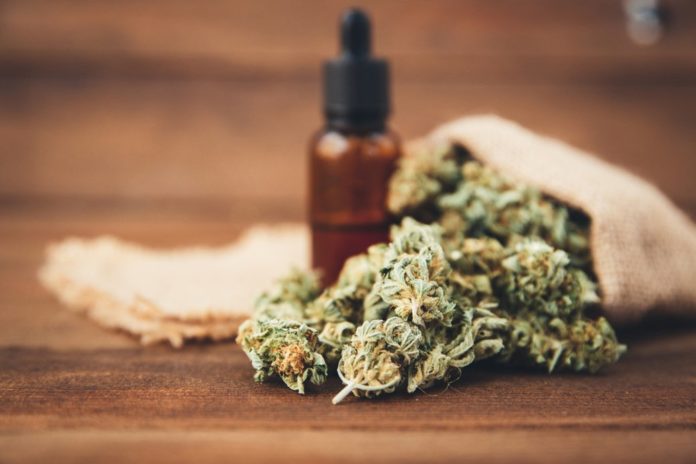Cannabis is a genus of plants in the family Cannabaceae. The number of species within the genus is disputed, but generally, three species may be recognized: Cannabis sativa, Cannabis indica, and Cannabis ruderalis. Due to its unique characteristics, Indica and Sativa have a wide range of medicinal benefits. Indica strains generally provide a sense of deep body relaxation. It is often used in the treatment of anxiety, chronic pain, and sleep disorders. They are also used to treat seizures, migraines, and headaches, and to relieve stress. One of the most popular Indica strains is MK Ultra. Sativa strains tend to provide a more energizing experience. They are often used to treat behavioral and mental issues such as ADHD and depression. Most popular Sativa strain is Sour Diesel.
Hemp is a plant of the Cannabis sativa plant species. It can be refined into many items, such as paper, textiles, biodegradable plastics, biofuel, food, and others. Due to its richness in polyunsaturated and essential fatty acids, hemp is increasingly used for skin care, treating acne and eczema, and heart health.
Marijuana Basics and Effects
Marijuana is naturally grown for its psychoactive properties, which come from its main psychoactive (mind-altering) chemical delta-9-tetrahydrocannabinol (THC). It is used both for recreational or medicinal use and can be smoked, inhaled, ingested, or injected directly into the body. The health benefits of medical marijuana include pain relief, nausea, multiple sclerosis spasticity symptoms, and etc.
Marijuana Effects
Many people experience mild euphoria and a sense of relaxation when they smoke or consume Marijuana. Other common effects, which may vary from person to person, include heightened sensory perception, laughter, altered perception of time, and increased appetite. However, pleasant experiences with Marijuana are not universal. Some people may experience anxiety, fear, distrust, or panic. However, these effects are more common when a person, for example, takes too much. According to the National Institute on Drug Abuse (NIDA), if taken in large doses may lead to an acute psychosis, which includes hallucinations, delusions, and a loss of the sense of personal identity.

How it works, and how long does it takes to feel the effects?
When smoked or ingested, THC and other chemicals break down. If Marijuana is smoked, these chemicals pass from the lungs into the bloodstream, and to the brain. Once THC reaches the brain, it activates receptors present in the membranes of specific nerve cells and almost immediately gives you the “high” feeling. If Marijuana is consumed through foods or beverages, the “high” effect is delayed (usually appearing after 30 minutes), since the drug must first pass through the digestive system.
Is Marijuana addictive?
Marijuana use can lead to what is known as a marijuana use disorder; Addiction occurs in severe cases when the person cannot stop using the drug even though it interferes with many aspects of his/her life. According to NIDA, people who use Marijuana frequently report irritability, sleep difficulties, decreased appetite, cravings, restlessness, or various forms of physical discomfort. Marijuana dependence occurs because the brain adapts to large amounts of the substance and reduces its production of endocannabinoid neurotransmitters.
CBD Oil Basics and Effects
CBD oil is produced mostly from hemp plants since they are high in non-psychoactive compounds like cannabidiol (CBD). The hemp-derived CBD contains less than 0.3 percent THC, so it does not get you high. Hemp plants are used for industrial, but also for wellness and medical purposes. The flowers are prime ingredients for CBD-infused oils, edibles, capsules, etc. The concentration of the chemical CBD varies from oil to oil.
CBD Oil Effects
Unlike THC, CBD is not psychoactive. This means that CBD does not change a person’s state of mind when they use it. However, researchers have found that CBD does produce significant changes in the body. The effects of CBD Oil vary depending on the condition of the person. People dealing with more severe conditions report easing symptoms, while others report sleeping better or lower stress levels. The majority report a feeling of general wellness. However, each person is different and thus has a different response to any new botanical supplement. Experts say that it is vital for people to be objective in observing the effects since this will help them find the right individual dose and above all see whether CBD can be helpful.
Research and users report that CBD helps in achieving homeostasis, reducing inflammation, decreasing blood pressure, relieving pain, treating epilepsy, and anxiety disorders, “killing” cancer cells through various apoptotic and anti-angiogenic mechanisms, just to name a few examples.
How it works, and how long does it takes to feel the effects?
CBD produces effects in the body by influencing receptors in the brain. According to researchers, CBD is a “smart” molecule, an adaptogen, a regulator, and a modulator. CBD acts comprehensively and dynamically, depending on the situation and location in the brain or body. Research has revealed that treating conditions with CBD is better, as opposed to an analgesic pain medication, which only works to reduce pain. Typically, when taken sublingually, CBD enters the system in about 20 minutes. If consumed as an edible or capsule, it may take up to two hours. Vaping is usually felt within minutes and gives more of an uplifted feeling that doesn’t last as long.
Is CBD addictive?
How CBD achieves its therapeutic impact on a molecular level is still being sorted out. It is assumed that CBD, does not bind to a specific receptor/receptor set in the brain, but it modulates and regulates. Researchers have identified more than 65 molecular targets of CBD, meaning that this chemical produces many effects through multiple molecular pathways. This is very relevant when it comes to addiction because repeated binding to specific receptors is what creates habituation, tolerance, and addiction. Once a person reaches their “subjective therapeutic dosing level” with CBD, they can stay there or decrease the dose.
Last but not Least – The Entourage Effect
The interaction of cannabis compounds to produce specific physical results is called the entourage effect. This means that the therapeutic benefits of Marijuana are higher when you consume products made of various compounds from the whole plant. A good example is the combination of THC, CBD, terpenes, and other cannabis compounds, which makes the treatment of depression and migraines possible.
